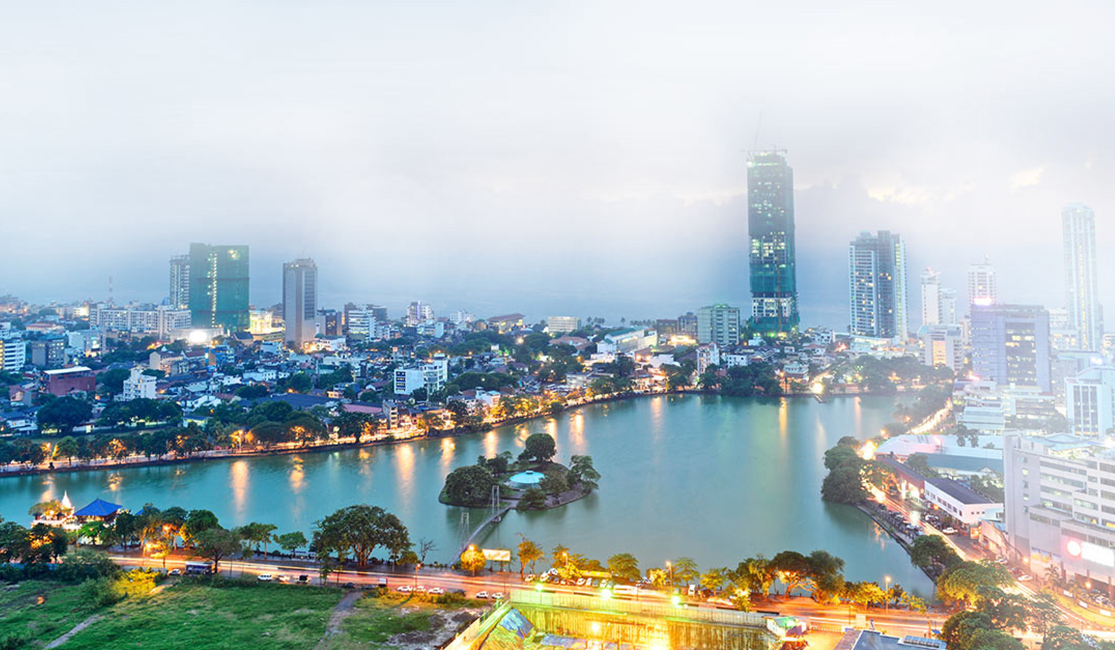Legendary billionaire investor George Soros famously observed that “the most money is made when things go from terribly awful to just awful.” Coincidentally, this is also the time when hardly anyone wants to invest.
Few markets in the region probably embody that adage more than Sri Lanka. Currently classified as an Asian frontier market in the same company as Vietnam, Pakistan, Bangladesh and Kazakhstan among others, the country's political instability grabbed the world's attention on Easter Sunday when suicide bombers attacked three churches and three tourist hotels. While media focus was and still is pessimistic, Sri Lanka is recovering and rebuilding. A great deal of hope is riding on the December 2019 elections and this could indeed be a turning point for the nation.
For investors, Sri Lanka offers a strong diversification benefit in the event that global market volatility increases. The correlation between U.S. equities and India indicate a strong positive correlation based on last five years of market data. Sri Lanka, on the other hand, has a negative correlation with both markets. The correlation between Sri Lanka stocks and India's Nifty 50 and the S&P 500 in the U.S. is negative 0.442 and negative 0.556, respectively, according to Bloomberg data.
Mark Mobius, the veteran investor who earned the moniker as the "father of emerging markets," believes the outlook for both Sri Lanka's bonds and equities, which currently have valuations at 10-year lows, will rise as the political situation improves.
The CSE (Colombo Stock Exchange) is currently trading at 8.3 times earnings and the Sri Lanka Investable Universe of 305 stocks BF (blended forward) is 7.3 times earnings. By comparison, India's stock market is at 27.9 times earnings.
Against this backdrop, there are opportunities for value investing. Colombo's ASPI (All Share Price Index) is trading at 8.3 times current year earnings, a 10% discount to the last 3-year average, and at a 32% discount to the MSCI Frontier Markets Index.
The Central Bank of Sri Lanka on May 31 cut its benchmark interest rate for the first time in more than a year to support the flagging economy, which grew at 3.2% in 2018 amid a protracted political leadership crisis. Then came the terrorist attacks, which killed more than 250 people. As a direct impact of the Easter Sunday tragedy earnings from tourism in May have plunged by –70.8% to $71 million from $243 million a year earlier, according to the Sri Lanka Tourism Office. The tourism industry accounts for 5% of Sri Lanka’s $87 billion economy.
Sri Lanka has been struggling to revive economic growth following a three-decade long civil conflict that ended in 2009 and ongoing political turmoil. Tourism arrivals have increased more than fivefold since the war ended and revenue from the industry is near a record. In order to promote tourism, Sri Lanka will soon offer free visa travel to Indian passport holders beginning August 1. Indians are the largest group of travelers to the country, followed by China, which also included in the visa free policy.
While India's finance minister has ruled out reconsidering a plan to issue foreign currency overseas sovereign bonds, Sri Lanka is marketing dollar-denominated bonds in overseas markets for the second time since March. The country's 7.55% coupon sovereign issue of $1.5 billion was 4 times oversubscribed as the search for yield pushed investors out further out on the risk curve. Dulindra Fernando, the manager of the Ceylon Dollar Bond Fund stated that U.S. dollar returns on Sri Lanka's sovereign debt fund had reached 8.56% during the first six months of this year alone.
The country's borrowers are finding a window for issuance after the Federal Reserve cut interest rates, and the European Central Bank has said that extra monetary stimulus might be needed. And that's because bonds that trade with negative yields have reached $14 trillion, which is equivalent to 25% of the global bond market, according to Deutsche Bank research.
Sri Lanka with its country rating of B has been deemed "speculative" by the rating agencies. Historically, Sri Lanka has traded above both Pakistan and Mongolia in sovereign credit spreads, but this year due to excessive pessimism Sri Lanka is now below both nations in credit quality. As Sri Lank's political stability improves with the new election, we should expect to see its credit spreads narrow.
Since 2014, South Asia has been the fastest growing subregion in the world, with its eight economies collectively boasting average annual growth of 7%. This is even higher than East Asia's 6.2%. But Sri Lanka is still overlooked and under-researched by global investors, which means it might be an attractive opportunity for a limited time.
Rainer Michael Preiss is a portfolio strategist based in Singapore, covering global macro, geopolitics, frontier and emerging markets as well as Blockchain and emerging Tech.


Leave your comments
Login to post a comment
Post comment as a guest